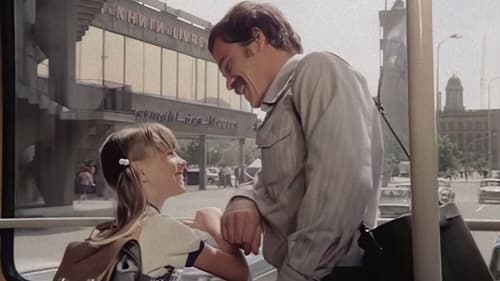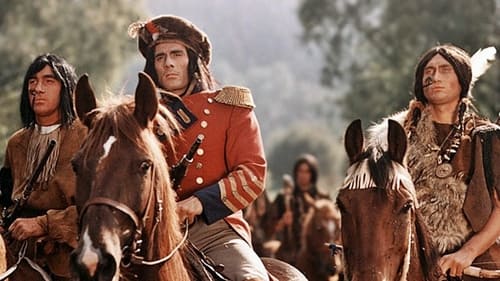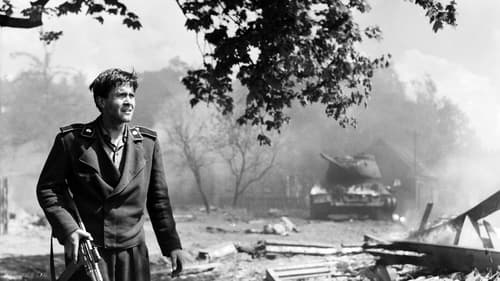Ingeborg Krabbe
Nacimiento : 1931-06-13, Leipzig, Germany
Muerte : 2017-03-17

Fr. Bröse

Polizeiobermeisterin Wildstein

Hedwig Schade

Felicitas Kallweit

Madame Virginie

Doris Zühlke

Lene Klabbusch

Martha Fuchs

Martha

Hilde Donner

Lotte Birnchen

Ilse Westphal

Lilo Schickedanz

Maria Gelthus

Rosi Klemmer
The Klemmers and the Neuberts live in a two-family house. The day before their driving test, Egon Klemmer and Bruno Neubert secretly buy a small blue Saporoshez from Ms. Stepper. Buying a car triggers turbulent entanglements, primarily due to Egon, who uses the little blue man for a secret jaunt.

Oma

Frau Hüffke

Wohnheimangestellte
A story about Ulrike, a ten year old girl who is looking for a new father with energy and determination.

The children of Herbert and Hella, two single train conductors, are going to vacation at Baltic Sea. Unfortunately the parents are to busy to go so the oldest sister is in charge.

Ilse Zenker

Ingeborg Krabbe

Elvira Sommerlatte

Frau
A film gala featuring a colorfully mixed program of musical numbers, along with the most popular artists of the GDR music, film and television scenes. The majority of the show is comprised of music performances, which are visually altered or transformed. Cabaret-style written contributions and one acts round out the program. Before each performance, the artists involved are seen in an everyday situation in their life.

Martha

Frau Schmidt
This episodic comedy explores love in all its varieties.

Ilse Meißner

Frau Nienhusen

Rosel Gralmann

Susanne Püschpingel

Kollegin Broszke

Frau O'Brian
At the beginning of the 19th century, white settlers regularly make and break treaties with the Native American inhabitants to gain possession of vast hunting grounds at ludicrously low prices without any bloodshed. Harrison, Governor of Indiana, has made and broke no less than fifteen such treaties, driving increasing numbers of Indians out to the infertile West. To put a stop to this criminal practice, the Shawnee Chief Tecumseh tries to unite the Native Americans.

Frau Kuhle

Electronic data processing is an absolute must in the Information Age. Karl Hoppe, the director of a large plant, is aware of this need for modernization and hires mathematician Dr. Jochen Bernhardt to install computerized systems which are supposed to calculate ways in which the plant could be run more effectively. Dr. Bernhardt is so focused on efficiency that he forgets about the human side of work, causing his girlfriend to leave him and several dissatisfied employees to quit their jobs.

Hilde

Kindergartenleiterin

Georgette

Two 17-year-olds, Werner Holt and Gilbert Wolzow, are pulled out of school and into Hitler's army. Gilbert becomes a fanatical soldier; but at the front, Werner begins to understand the senselessness of war.

„White mouse“ Fritz controls the traffic on Dresden’s Körner Square. Helene, who crosses the junction on her motor scooter every day, has taken a shine to Fritz a long while ago. Although Fritz yields right-of-way to her remarkably often, the two have not spoken to each other. In order to finally get to know him better, Helene deliberately performs a traffic violation. Her plan is working: She is ordered to take road safety education lessons from Fritz and they get closer. New problems arise in the shape of Mrs. Messmer who must pay a monetary fine. She feels discriminated against by Fritz and complains about him to his supervisor.

junge Ehefrau
Former East German engineer Erich Becker had been lured to West Germany by promises of a high reward. Now residing in Stockholm, he is recalled to serve as a spy in the East. He is to convince Dr. Jadenburg to flee from the GDR with the help of his daughter Hanna, who works for the West. While travelling on the train with Hanna, he is told that he is also to murder another agent who betrayed and now works for the Stasi. The traitor is revealed to be a former friend of Becker, Harry Korb.

Kellnerin

Edith Kolbe
A Saturday evening dance in the village pub is interrupted when the barn of local farmer Paul Gäbler catches on fire. The farmer himself is soon found – hanged. Sawmill owner Züllich claims that Gäbler committed suicide because he was forced to join an agricultural production cooperative, but others are convinced Gäbler was murdered. Officers Schneider and Anders must navigate their way through a complex maze of personal and political motivations in order to reconstruct the crime.

Adele

Rosa









